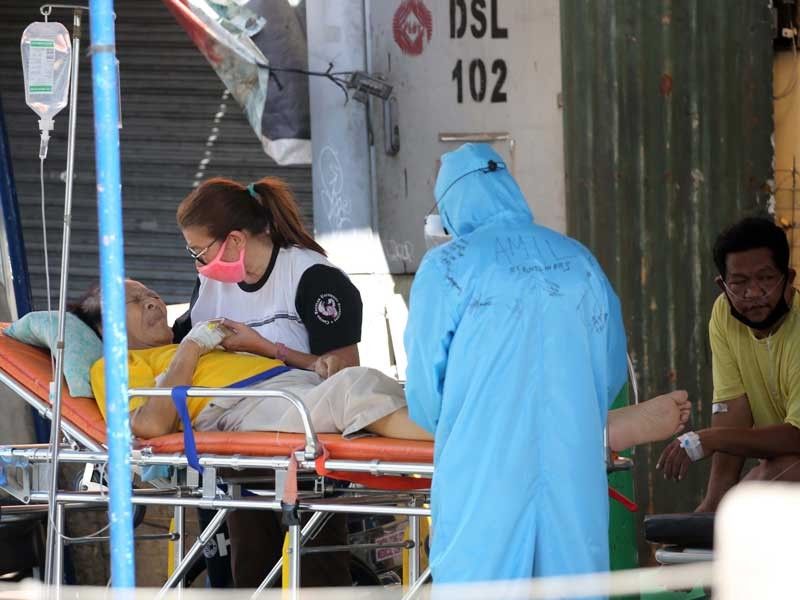Commentary: People’s health and money at risk in a time of COVID-19

It is disconcerting that a spate of allegations had been raised on the misuse of public funds amid the uphill battle of the Philippines to control the COVID-19 crisis.
The Senate has started an investigation on the questionable disbursement of funds by the Philippine Health Insurance Corporation (PhilHealth) drawn from the P30-billion Interim Reimbursement Mechanism (IRM). The IRM is an emergency support program for hospitals taking care of COVID-19 patients.
During the Senate hearings, Sen. Panfilo Lacson wondered why P231 million from the IRM were released to 48 dialysis centers and four maternity clinics with no COVID-19 related cases. On the other hand, Sen. Francis Tolentino disclosed that some hospitals were able to collect benefit claims for COVID-19 cases even if the patients were admitted for other ailments.
The COVID-19 crisis is affecting not just people’s health but public finance as well in a very injurious way. As the crisis deepens, it begins to unravel that the use of the IRM fund is just one of the many alleged corrupt practices happening in these pandemic times. Rent-seeking operations are seen to be at play in other emergency response programs as well.
In the Stratbase ADRI forum on “Continuing Political Development Towards a Better (New) Normal: Making Public Institutions Matter” last week, retired Judge Dolores Español, Chair of Transparency International-Philippines, enumerated the suspected cases of unlawfully benefitting from COVID-19 response funds.
These include the cash allocation to poor citizens that have been marred with allegations of corruption against local government officials, the ghost payments to deceased patients still receiving support for hospitalization from Philhealth, and the Department of Health purchase of overpriced personnel protective equipment, ventilators, and other medical supplies for hospitals and quarantine facilities. The Office of the Ombudsman has started investigating the accountability of the DOH on this matter.
The country’s institutional defense to fight corruption has weakened with the downward slope in rule of law performance over the years. In the 2020 Rule of Law Index, the Philippine registered an overall score of 0.47 that is below the global average of 0.56 and the regional average of 0.60. Globally, it ranks 91 out of 128 countries surveyed.
Published by the World Justice Project (WJP), the Rule of Law Index is regarded as the leading source for original, independent data on the rule of law. It depicts the rule of law in 128 countries by presenting scores and rankings based on eight factors: Constraints on Government Powers, Absence of Corruption, Open Government, Fundamental Rights, Order and Security, Regulatory Enforcement, Civil Justice, and Criminal Justice.
The Rule of Law Index embodies the experiences and perceptions of both ordinary citizens and in-country professionals regarding the performance of the state and its agents and the actual operation of the legal framework in their country.
The General Population Poll questionnaire includes 127 perception-based questions and 213 experience-based questions, together with socio-demographic information on all respondents.
It is administered by leading local polling companies using a probability sample of 1,000 respondents. The Index team determined, on average, more than 300 potential local experts per country to respond to the Qualified Respondents’ Questionnaires.
Since 2015, the Philippines posted declining results in the Rule of Law Index with a score of 0.53 in 2015, 0.51 in 2016, 0.47 in 2017-2018, 0.47 in 2019, and 0.47 in 2020.
The Rule of Law Index 2020 shows that more countries declined than improved in overall rule of law performance for a third year in a row, continuing a negative slide toward weakening and stagnating rule of law around the world. The declines were widespread and seen in all parts of the globe. The Philippine data is consistent with the global trend since its score remained the same for the past three years.
At a global level, the highest levels of decline by country over the past year were seen in the areas of Fundamental Rights (54 declined, 29 improved), Constraints on Government Powers (52 declined, 28 improved), and Absence of Corruption (51 declined, 26 improved).
The Philippines is following this pattern as its score went down in the areas of Fundamental Rights (from 0.42 in 2019 to 0.41 in 2020), Constraints on Government Powers (from 0.53 in 2019 to 0.50 in 2020), and Absence of Corruption (from 0.47 to 0.46 in 2020).
Dr. Rizal Buendia, independent political analyst in the UK, emphasized during the Stratbase ADR forum that political development is fostered through democratic inclusion and public participation anchored in the promotion of good governance, civil society development, and the rule of law.
He further stressed that formal constitutional and organizational arrangements are meshed with informal institutional practices. While formal checks and balances might appear good on paper, the actual practices might spell a different picture.
To sustain democratic political development, adequate measures are needed to strengthen the rule of law by improving the institutional constraints on government powers, promoting fundamental rights and curbing the use of public office for private gain. In the Rule of Law Index 2020 Insights, the WJP states that the “effective rule of law reduces corruption, combats poverty and disease, and protects people from injustices large and small.”
Improvements in the rule of law would provide assurance to the citizens that their health and future are protected from the deadly impact of corruption in the age of COVID-19.
Francisco Magno is a trustee and convenor of the Right Governance and Open Governments Program of think tank Stratbase ADR Institute.
- Latest
























